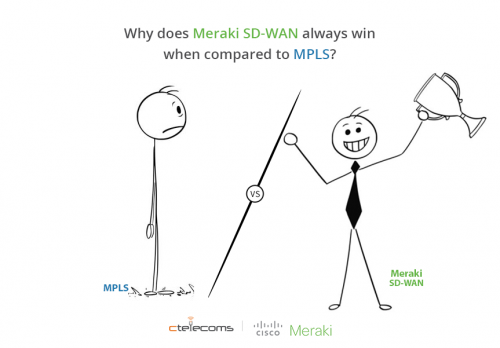

2023/02/04 Unified Communications & Networking Solutions 157 visit(s) 4 min to read
Ctelecoms

Then let’s talk…
When MPLS first emerged in the 1990s, many CIOs and IT professionals saw it as a way to drive growth in the burgeoning digital age. However, the technologies MPLS supported eventually outstripped the networks that housed them, and MPLS has been struggling to keep up ever since.
Those who welcomed MPLS two decades ago are now grappling with the decision of whether to stay with MPLS or move to a solution that can accommodate cloud applications and remote teams.
MPLS considered as a good choice for those organizations that are unwilling to change and do not require higher-level functionality, and they are satisfied with what technology for MPLS offers, it is quite reliable, and it also promises predictability of traffic within the network.
But according to some surveys about MPLS, you are required to utilize the same provider that you use at your existing locations anytime you want to add an additional network node to your traditional MPLS WAN, this can be highly costly and take a long time.
With the rapid adoption of cloud-based applications in the form of SaaS and IaaS, an organization’s WAN architecture experiences an explosion of traffic accessing applications distributed across the globe - and traditional wide area networks (WANs) based on conventional routers were never designed for the Cloud.
On the other hand, Cisco SD-WAN powered by Meraki provides branches with 20x more bandwidth and 4G backup · 60% savings on WAN after replacing costly MPLS with broadband and fiber.

The flexibility and ease of set-up of SD-WAN makes it a very attractive network option compared to the old, and inflexible, ways of MPLS.
By using SD-WAN, your IT team can assure higher overall performance for cloud totally based applications. It is very easy to spin up a new network node. Given the reality that you can use the underlay network from any provider, your network enlargement is not confined to the footprint of one provider.
SD-WAN is often a cost-effective solution compared to MPLS, it includes the public Internet as part of the network and is inherently less costly than a network consisting entirely of private leased lines.
MPLS is implemented, managed, and maintained by the service provider, so users have little involvement in network management. However, changing routing protocols and general maintenance require users to interact with their Internet Service Provider (ISP), which can be slow and frustrating.
Unlike MPLS, self-managed SD-WAN requires significant user involvement, but with the added benefit of control and transparency.
Network reliability and resilience are of paramount importance as the cost of network downtime is high. Because SD-WAN is a centralized, software-driven solution that requires minimal hardware coding or infrastructure changes, SD-WAN enables to build relatively low-cost network redundancy across multiple carriers easily.
Finally, Compared to Multiprotocol Label Switching (MPLS), Meraki SD-Wan can be less expensive, more secure, and it can provide higher performance. MPLS can have steep bandwidth costs, while SD-WAN protects your network from vulnerabilities that MPLS cannot.
Now, if you want to try the new solution, why not let Ctelecoms team calculate the savings and total cost of your network by replacing MPLS with Meraki SD-WAN.
All you have to do is to enter the number of your company's branches by following the link below, and you will get the result to your email.